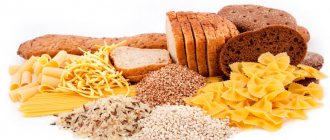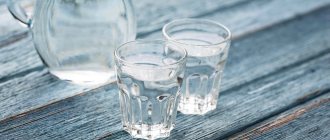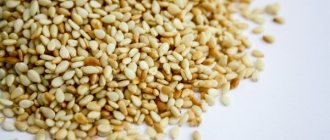How to lose weight without dieting
Let's figure out once and for all how to lose weight without dieting and is it even possible?
What is more important: calories, nutrition or food quality?
You know, you can gain kilograms by eating only cucumbers with chicken breast without salt, if you eat them in bulk, or you can lose weight without denying yourself your favorite treats - when losing weight quickly at home, it’s all about the difference in calories consumed and burned.
Any food contains calories and you can gain and lose weight from any food. But, of course, there are details.
For example, every half a kilo of carbohydrates in the body retains about one and a half liters of water. A whole charlatan trend is based on this, when, under various sauces, people cut down on carbohydrate consumption, lose weight by draining water, the reserves of which, of course, return with a change in diet.
And this is water, in any case, and not fat - people look the same. We read about this in “If you want to lose weight, don’t eat carbohydrates .
With such a diet, weight loss will occur even against the background of a calorie surplus, the only difference being that this is simply a loss of fluid and such a loss only works on the first 1.5-2 kg of this same water. This has nothing to do with fat, which means it cannot be an argument in favor of the quality of calories .
But there will always be a lady who will foam at the mouth to prove to you that cutting carbohydrates allows her to eat as much as she wants and not gain weight. And that carbohydrates are the main evil that makes you fat.
Poor thing, maybe it was ketosis that made her sick .
So again, we remind you that diets are based on very simple advice: “reduce or eliminate a food/macronutrient to lose weight.” Usually this means something high in calories, usually fatty, carbohydrate and sweet. In the style of “reduce fat to 30% of all calories. Or eat no more than 50 grams of carbohydrates per day.”
To explain the effect, these revolutionary nutritional methods and diets use all kinds of pseudo-physiology, talking about clean, proper nutrition (yep, Aryan food right), although everything is simple. If a food adds a lot of calories to your diet, remove it.
You will consume less and lose weight. This is not a magic of a special quality of calories, but a simple restriction of them .
Of course, by limiting fat to 30% or fat to 50 grams and below, a person automatically reduces calories and loses weight. Not because of the magical effect of having the right amount of fat/carbohydrates and their quality, but because you eat fewer calories in total. You just start eating a lot less without thinking about it.
A calorie is a unit of energy measurement, it is always the same. People seem to confuse it with weight. But it's the presence or absence of calories that matters for weight loss, so that's why 100 grams of celery is "better" than 100 grams of granola ( "13 Surprising Dishes and Foods That Have More Calories Than You Think" ).
Celery is larger in volume, high in fiber and water, but low in calories. And granola, for all its attractiveness and “fashionability,” is very nutritious and high in calories.
Calorie content
Calorie is a measure of energy; today it refers to the energy value of foods. Calories do not make you lose weight or gain weight. This is just a unit of measurement. But there is a direct connection between weight loss and calorie intake. In simple terms, a lack of calories leads to weight loss, and an excess leads to weight gain.
Balancing nutritional supplements when losing weight is as important as counting calories.
You can eat candies alone, keeping within your kcal norm. In this case, the person will not receive any benefit: the muscles will be weak, the skin will be flabby, and there will be no strength left for training and everyday activities. All this is fraught with serious disorders and disruptions in the body. Accordingly, fat burning processes will also be slowed down. Therefore, it is necessary to count BZHU!
What to eat to lose weight
Do you understand everything? No? We knew it, let's take a look at what is important in food for weight loss, what other secrets of proper nutrition for proper weight loss you need to know and how to eat right to lose weight:
How many calories per day do you need to lose weight?
Protein
A sufficient amount of protein will always be more effective than a protein-free diet for the same calories: it protects muscles and allows you to lose more precisely due to fat. Any research comparing diets with large and small amounts of protein proves this to us.
People who consume protein in the required amount lose weight more efficiently with the same caloric content of food than those who do not get enough protein. Even if both groups lost the same amount of weight, people in the high-protein group lost more fat and less muscle.
We also already know that protein controls appetite much better than carbohydrates . It takes longer to digest and makes blood glucose levels stable.
Again, this is where low-carb When a person refuses carbohydrates and limits fats, he has no choice but to fill the missing calories with protein.
Protein is the second most important factor in proper nutrition after calories. But is the source of the remaining calories important when eating adequate protein?
Fats and carbohydrates
Under conditions of strict calorie control, you can change the amount of fats and carbohydrates in both directions, because it does not affect the speed of weight loss and the quality of the lost weight if they fit into your daily calorie intake. You can eat a lot of carbohydrates, or you can eat a little. It's the same with fats.
But there are, of course, nuances that would be impossible without them: the results can be influenced by the genetics and metabolism of a particular person. This is especially true for carbohydrates and insulin sensitivity.
People with poor insulin sensitivity lose weight worse on a high-carbohydrate diet for the same calories (we wrote about this in the article “If you want to lose weight, don’t eat carbohydrates” ).
The same applies to high-fat ketogenic diets. You can easily find those who lose weight faster on this diet. But it is also possible for those who lost all their muscle instead of fat on the keto diet, and achieved better results on carbohydrates.
With strict calorie control, the source of carbohydrates or fats does not matter either in the rate of weight loss or in the quality of weight lost and body composition.
So, what is our conclusion: if we control calories and eat enough protein (about 2 grams per kilo of weight when maintaining weight and up to 3 grams when dieting), the remaining calories can come from fat and carbohydrates in any ratio and from any source .
Results for the same nutritional value may vary from person to person. It's not about the quality of calories, but about genetics and metabolic characteristics. So, if you're being honest about your caloric intake, eating enough protein, but all your other foods are fatty or sugary, you'll still technically lose weight.
The problem is that most people are unable to control their hunger or appetite on this diet. They will overeat and will not be able to lose weight, or even gain weight.
It is clear that it is much easier to limit calories to fatty and sweet foods than vegetables and herbs. Eating 2,000 calories at McDonald's is easier than eating at a vegetarian restaurant.
Not a single living person is able to eat, for example, a cucumber worth 2000 calories, because it is 30 kilograms, but at McDuck it’s as easy as shelling pears: 1 milkshake (chocolate - 395 kcal), standard fries (340 kcal), 2 cheeseburgers ( 610 kcal), makfluri (from 290 - 400) – already 1745 kcal.
This makes a big difference when calories are not controlled. This is why all diets are based on a simple fact: eat less of the foods that are easy to eat a lot of and/or eat more of those that are difficult to eat a lot of. You automatically reduce your daily caloric intake and force your body to lose weight .
Well, calories are always the same from the point of view of thermodynamics . The human body, like any living organism, cannot create energy from nowhere and destroy it into nowhere ( “Where does fat go when losing weight” ).
He can only transform her from one form to another.
How much does it weigh in grams?
If you decide to try the method of calculating calories, then even in the process of mastering the program you will have a question - how much do you need to eat to lose weight? The first (and most correct) way is to find out your weight, then write down all your food for a week. Then add up all the calories and divide by seven (according to the number of days). This way you will determine your average daily calorie intake. If during this period your body weight has not changed, then this indicator can be taken as a starting point. And for starters, reduce your caloric intake by literally 10-15%. For those who are very pressed for time and need to start losing weight yesterday, there is a plan “B”. Using the Mifflin-Geor formula (Google to help), you determine your basic energy expenditure, how much your body spends to provide for itself in a state of complete rest. Then multiply the resulting value by the physical activity coefficient corresponding to you: 1.2-1.3 - inactive, mostly sedentary lifestyle; 1.4-1.6 - moderate activity, two or three workouts per week; 1.8+ - very active lifestyle, 3-4 or more workouts per week.
Photo: istockphoto.com
Kcal or BJU?
Again, in the context of how to lose weight without dieting and what exactly you need to eat to lose weight, you need to understand what is more important for your waistline - the calorie content of the diet or the macronutrient ratio?
Calculating the daily energy value of your diet is simply necessary if you have a specific goal. Most often this is a decrease in body fat and an increase in muscle mass. To solve any problem, it is necessary to accurately determine the calories consumed and expended. Unfortunately, it is almost impossible to determine this by eye.
So, the most important thing in losing weight is the correct ratio of proteins, fats and carbohydrates (BJU) within this daily caloric intake . Everyone will have their own, depending on your data and goal, since the concept of calorie content itself is quite relative.
For example, 200 grams of vegetable oil contains 1778 kilocalories. This means that I drank 1 glass of oil in the morning and am free for the whole day, since the daily requirement has already been met. But you yourself understand that this style of eating will soon drive you to the clinic to see the doctor on duty.
In addition to the total calorie content of the daily diet, it is very important to maintain the balance of nutrients, which is necessary to achieve the goal and maintain the overall health of the body.
Many people make three huge mistakes when losing weight when they think that the main thing is counting calories and not exceeding their daily allowance, but not taking into account the proportions of BJU. But it's not right. Indeed, with age, despite all our efforts, the quality of metabolic processes decreases - in turn, such indicators as:
- metabolic rate,
- percentage of food absorption
- degree of cell fullness.
In other words, you can’t just eat the norm of calories; you also need to monitor the composition of macro and micronutrients . That is, it is important not only how much we eat, but also what we eat!
That is why it is necessary to count both calorie intake and nutritional value and it is impossible to say unequivocally WHICH IS MORE IMPORTANT! Depending on the needs and condition of the body, the proportions of BJU may vary: some need more protein, some need more fat, some need more carbohydrates: “Metabolism”
And also try to eat a varied diet . For the normal functioning of metabolic processes, and therefore maintaining excellent health and maintaining cell renewal, the body needs more than 1000 different micronutrients and chemical compounds!
If you always eat only one food (even if it is suitable from the point of view of traditional dietetics), then over time the metabolic processes will still be reduced, since the body may receive many more chemical compounds than required.
Of course, the body will be able to partially synthesize something from existing micronutrients - but unfortunately, not everything.
Therefore, it is recommended to periodically alternate different types of foods, even if your caloric intake and training plan do not change! Swap radishes for radishes, rice for buckwheat, chicken for tuna, hazelnuts for cashews, tangerines for apples, cheeses for cottage cheese, etc.
The main rules for losing weight and losing weight after 30 years
Counting calories and carbohydrates for weight loss.
What's the best way to lose weight? Many people are confused by the question: do you need to count calories and carbohydrates to lose weight? These doubts are caused by the eternal confrontation between calories and carbohydrates. What is more important: counting calories or cutting down sugary carbohydrates in your diet? What about fat? To get the answer, you need to sort all the macronutrients according to their nutritional value and find out whether you need to count calories and carbohydrates to lose weight.
To lose weight, you must create a calorie deficit in your body. This means that their consumption should be less than the amount that you burn. Simply, you should eat less and move more. You can burn large amounts of calories through exercise or increasing your daily activity. For example, take more steps every day. Another way is to eat fewer calories. So, you still need to count calories.
Fats, sugars and carbohydrates can greatly affect the total number of calories in your daily diet. So these elements also need to be given attention.
Effect on hunger
Imagine curd cheese, about 100 grams. packaged. Its calorie content will be 300-350 kcal. If you eat it, you will feel full, but for an hour maximum. For the same caloric value you can eat 50 grams. buckwheat and 200 gr. chicken, beef.
Feel the difference? The number of calories is the same, but the effect is very different - you feel full for 3 hours, and everything is spent as needed: meat - for building material, carbohydrates - for energy.
IIFM Flexible Diet: Which Carbohydrates Are Best to Eat for Weight Loss?
So it cannot be said that the source of calories is not important at all. This affects other aspects of physiology beyond the figure. Health, energy levels, hunger, appetite, athletic performance, long-term diet adherence, and everything else also play a role and interact with each other.
But calories always come first when it comes to losing weight, and food quality comes only second . Proteins, fats, carbohydrates, vitamins, minerals - these are things of a different order. Calories are responsible for energy balance and weight loss/gain.
Everything else is for what we get at the end: a cheerful, healthy person with good skin, hair, muscles, or Tara Reid.











